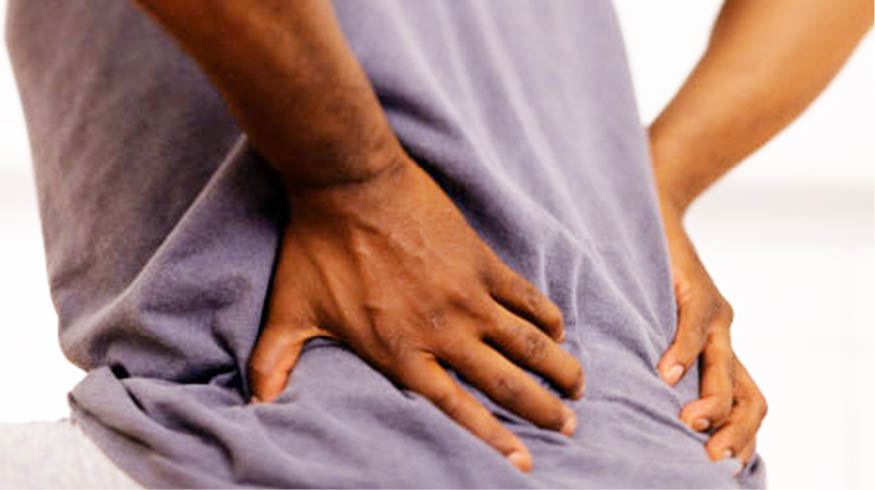Here’s why your back may hurt and you are short of breath
Your back supports you, and works hard every day to keep you upright. That means it can easily be injured. But when back pain occurs alongside shortness of breath, making breathing difficult and painful, the underlying cause could be more. Muscle strain. Oh, yes! Small and large muscles abound in the back and between the […]

Your back supports you, and works hard every day to keep you upright. That means it can easily be injured.
But when back pain occurs alongside shortness of breath, making breathing difficult and painful, the underlying cause could be more.
Muscle strain. Oh, yes! Small and large muscles abound in the back and between the ribs, so you see why a strain is a common possible cause of back pain.
Straining and injuring these muscles can cause pain, which can make it more difficult to take a deep breath.
Muscle strains respond well to rest, ice or heat, and over-the-counter pain relievers, such as ibuprofen or acetaminophen.
Pneumonia. Either a virus or bacteria can cause pneumonia—an infection of the lungs. Most health people will recover without any complications, but the infection can be severe in older adults or people who have other medical conditions.
Excess weight. You don’t have to be told this. Being overweight means the muscles of the back have to work harder to support the basic activities of daily life. Having extra fat around the chest or back can also make it harder to breathe or take a deep breath.
Heart disease. Blockages to the heart can cause discomfort elsewhere in the body, such as the back, jaw, arms or shoulders.
Coronary artery disease can also cause shortness of breath as it becomes more difficult for the arteries to carry oxygen throughout the body.
Anyone who suspects heart disease should mention these symptoms to their doctor for further evaluation and treatment, if necessary.
Gastro-oesophageal reflux disease. When stomach acid back up into your throat, it causes chest pain, heartburn or a sour taste in your mouth. That’s Gastro-oesophageal reflux disease (GERD).
The pain can radiate to the back, often between the shoulder blades and usually after eating. In addition, if the stomach acid leaks into the airways, it can cause shortness of breath, pneumonia, or chronic coughing.
Gallbladder disease. The gallbladder is a small organ that sits in the abdomen and stores bile, which is a substance that the liver produces to help digest fats. Sometimes, small stones can form in the gallbladder that block the flow of bile.
Without treatment, gallbladder disease can cause extreme pain in the abdomen that radiates to the back. Shortness of breath, as well as confusion and rapid heart rate, can occur if the gallbladder has an infection that spreads to the bloodstream.
Heart attack.
A heart attack requires immediate treatment. It signals a blockage in the heart vessels that is compromising the tissue in the heart. Though some people have crushing chest pain, others have vague symptoms, such as back pain and or shortness of breath.
Pulmonary embolism. A pulmonary embolism can cause shortness of breath and pain.
The primary symptom of a pulmonary embolism, which is a blood clot in the lung, is often shortness of breath and chest pain. Some people may experience back pain as well.
It is essential to report any cases of sudden shortness of breath to the doctor immediately, or seek emergency care if it occurs after hours.
Aortic dissection. An aortic dissection occurs when there is a tear in the aorta, causing blood to leak into the vessel walls. This is a very rare condition but causes severe back pain, shortness of breath, chest pain, weakness, and sweating.
An aortic dissection is a life-threatening event that requires immediate treatment. Depending on where the dissection is, emergency surgery may be necessary.
Could it be lung cancer? Shortness of breath and back pain are not typical signs of lung cancer. However, lung cancer can cause shortness of breath or chest pain. However, if the cancer spreads to the bones, it can cause pain in other parts of the body, such as the back or hips.
Courtesy: mnt.to
